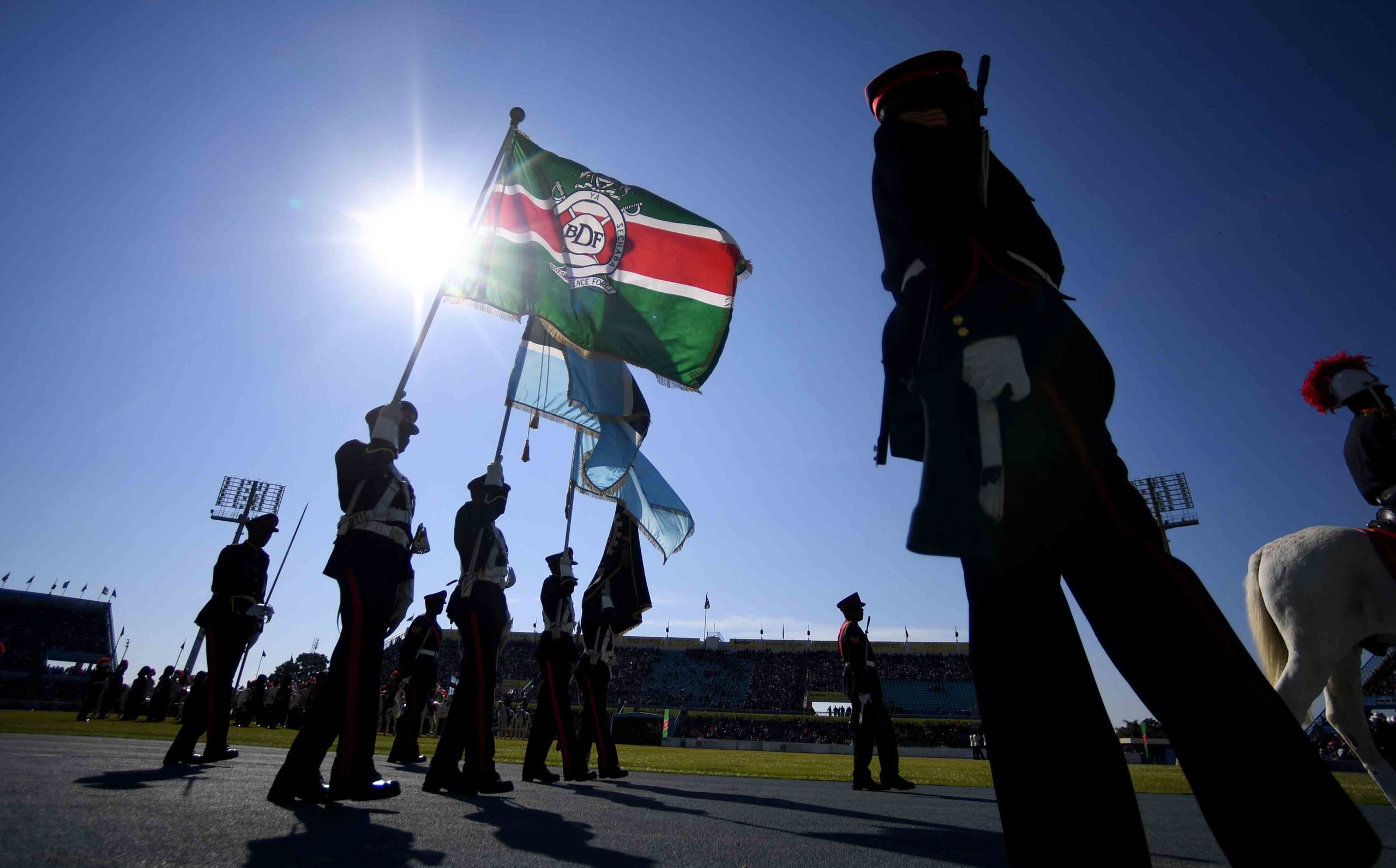Political Activist and Commentator Lawrence Ookeditse argues that present-day Botswana needs generals who are keen to develop and equip an engineers corps and work with designers to birth a defence industry. That is the next frontier for any general in Botswana looking to building a long-term reputation and guaranteeing the security of our Republic.
I subscribe to the philosophy of realism. A realist in international relations believes that a country ought to maximize its power and capabilities relative to other countries. This should say I am for military capabilities being strengthened. But we have a problem: the defence and security complex takes up 16.7% of our recurrent budget and 16.1% of the development budget. The truth is that for every expenditure there is an opportunity cost, which is why the defence and security complex should start justifying its consistently higher allocations by helping the economy.
If you look at countries such as the US, China, Russia and Britain who have high expenditures levels on their militaries, you realize that a good portion of that expenditure stays within the countries. This is because they have local industries that produce arms and armaments. In a way, military expenditure for them is a shot in the arm for the economy. In our case, military expenditure syphons money out of the economy. The only happy guys are a few tenderprenuers who go on to charge ridiculous mark-ups.
It is time that we developed a real defence and security complex. There is need to inspire development of military hardware and software industries. But for this to happen, the military must commission such projects. By its very nature, the arms industry is sensitive. This then means it would be very difficult for an entrepreneur to merely set up and start producing weapons.
With their budget, the defence sector should go into strategic partnerships with contractors to build a good part of their consumables. These range from military ratios, small arms, ammunition and various types of software that they use. In so doing, they would be stimulating the local industry, creating jobs and actually contributing to the GDP of the country as we may end up with some of these being sold to other countries. We must not be content with merely spending our money to strengthen other countries.
It is also a bad strategy to rely on others to supply everything you need for your defence. What happens when you are at war and they refuse to supply you with parts or weapons themselves? What happens when there is a blockade and we are unable to ship or fly in any weapons in wartime? It is a bad strategy to always look outside.
Students of history will recall Fidel Castro’s frustration during the Cuban missile crisis, especially when Soviet Premier Nikita Khrushchev ordered that the missiles be removed from Cuba in a deal with the USA. The Soviets looked at their greater strategic interests and somewhat sacrificed Cuba, although in fairness they were guaranteed by the US that Cuba would not be attacked.
Furthermore, by consistently high defence expenditure being sent offshore, we risk having the defence over-armed and peace under-funded. Afterall, our key aim should be least diversion of resources from economic sectors to armaments. Our military spending patterns should show a focus on human security (more emphasis on people) as opposed to state security. Besides, the world has changed. As a result of more countries becoming democracies and that democracies hardly ever go to war against each other, there are fewer wars today than ever before. And the few wars in the world today are intra-state as opposed to inter-state (within countries as opposed to between countries). This presents a couple of arguments.
It says that expenditure on peace ought to be a significant consideration. Expenditure on peace is basically spending money on things that ensure we have a low chance of uprisings such as job creation, healthcare and other human development projects.
Given that wars between states are increasingly unlikely, there is a greater likelihood that all the heavy military expenditure is actually in preparation for turning those weapons against our own people and infrastructure if uprisings occurred. Going by this logic, we are arming for self-destruction.
Since we are not an authoritarian country, we have no reason to arm to the teeth for fear of internal rebellion. Inter-state wars can also be predicted over years, and we have no war looming in the next decade. If we believe we need arms and amendments, then we should be unapologetic about telling the defence sector to focus on developing the industry locally. We are not in a hurry at the moment, so we can have a good start.
The best defence you can ever have is to be as close as is possible to self-sufficiency at producing weapons and creating defence systems. It is my sincere hope that the generals are seriously considering this because we need new age thinking. We need military generals who are thinking of improving our capabilities through self-sufficiency. We need generals who will develop and equip an engineers corps to work with designers and others to birth a defence industry. That is the next frontier for any general in Botswana looking to build a long-term reputation and guaranteeing the security of our Republic.

